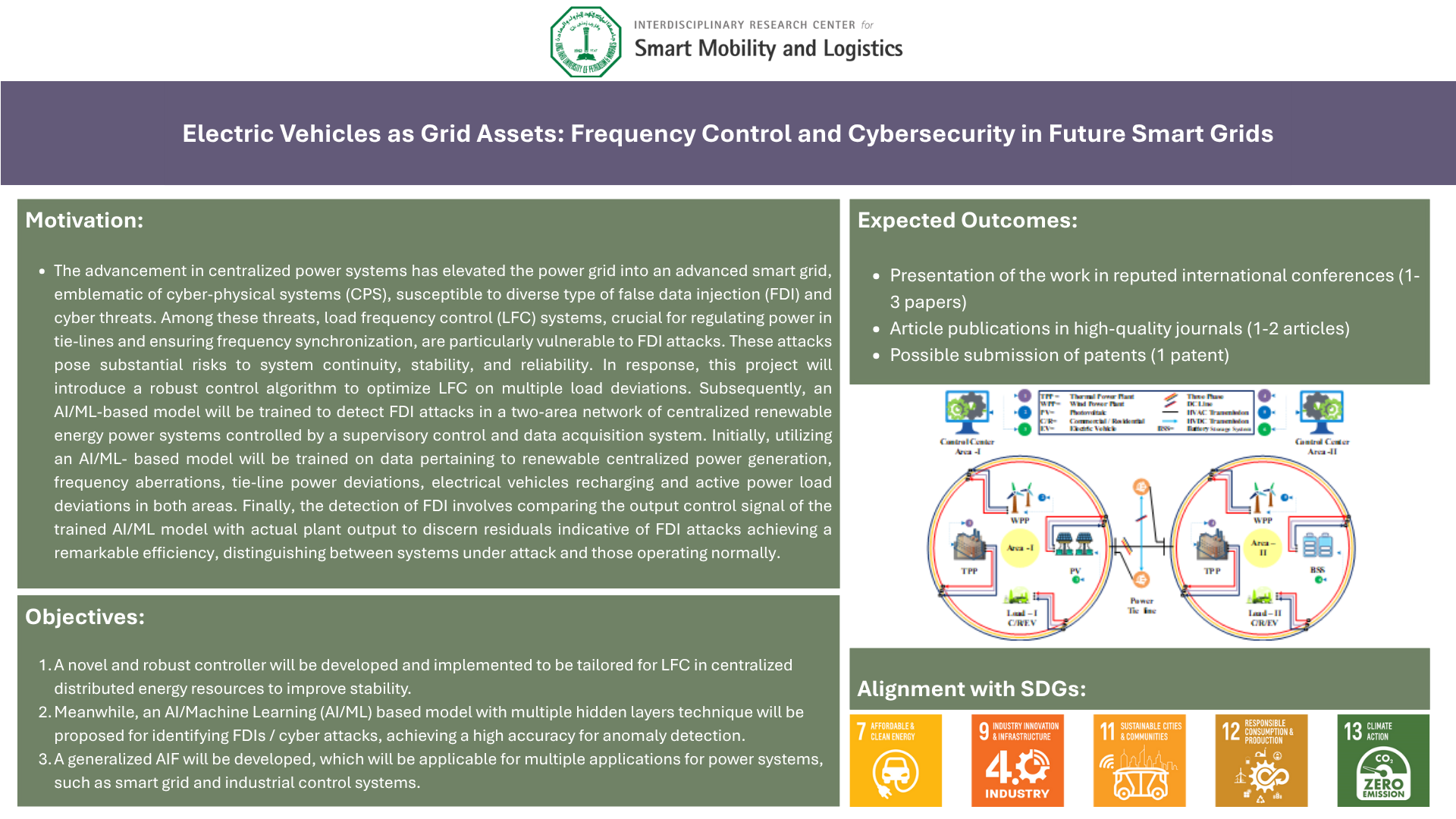Electric Vehicles as Grid Assets: Frequency Control and Cybersecurity in Future Smart Grids
PI: Dr. Sami El-Ferik
CoI: Dr. Muhammad Gulzar, Dr. Salman Habib
CoI: Dr. Muhammad Gulzar, Dr. Salman Habib
